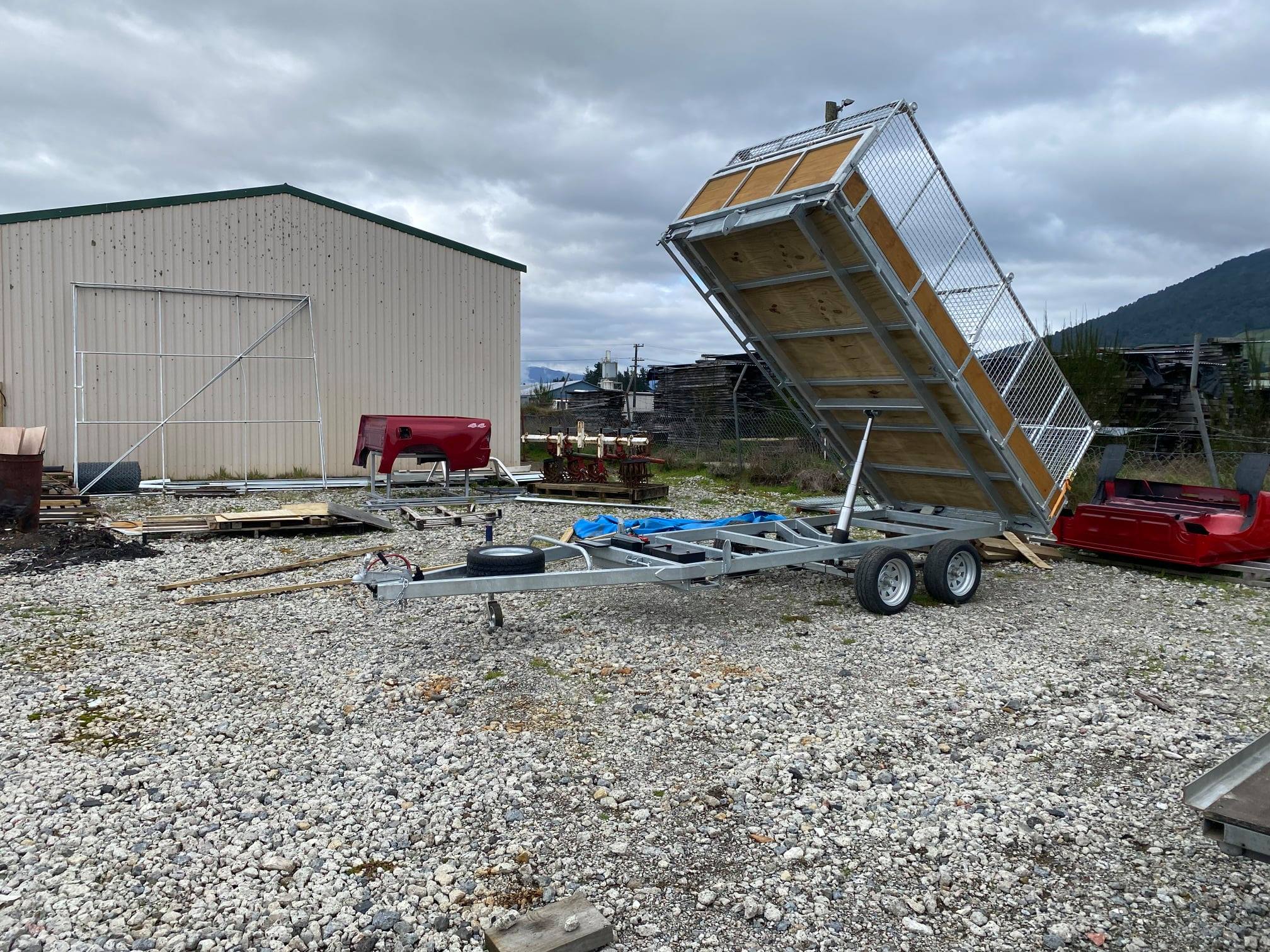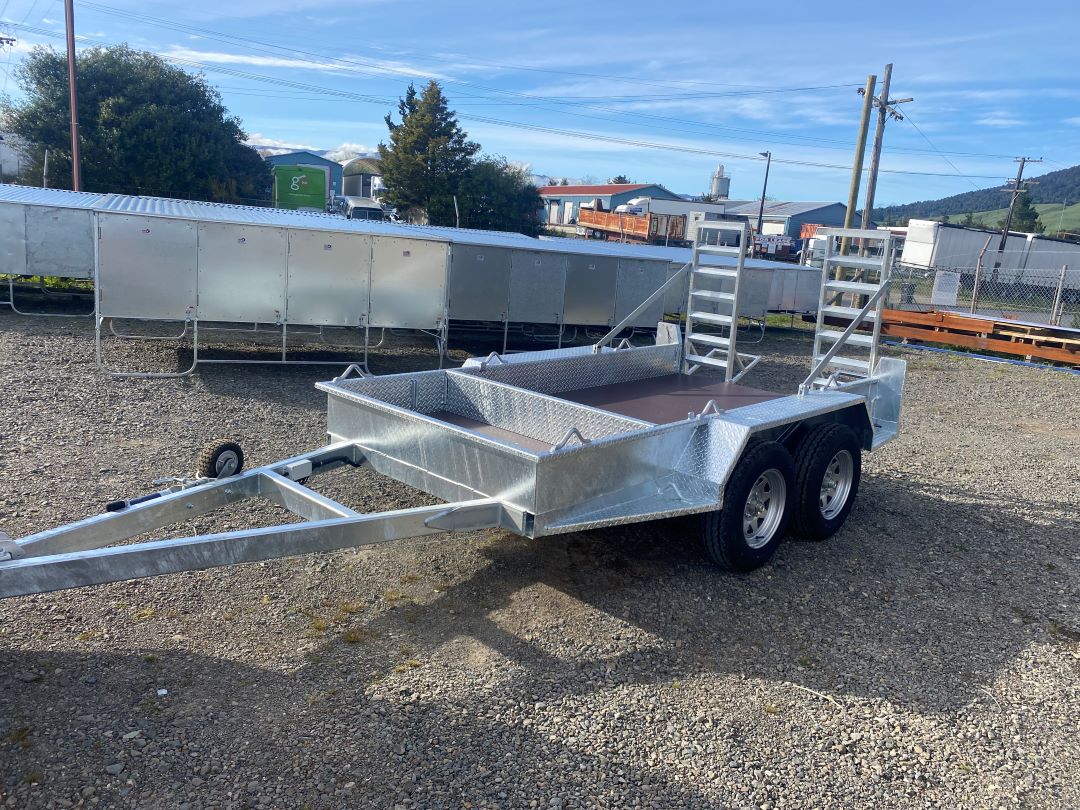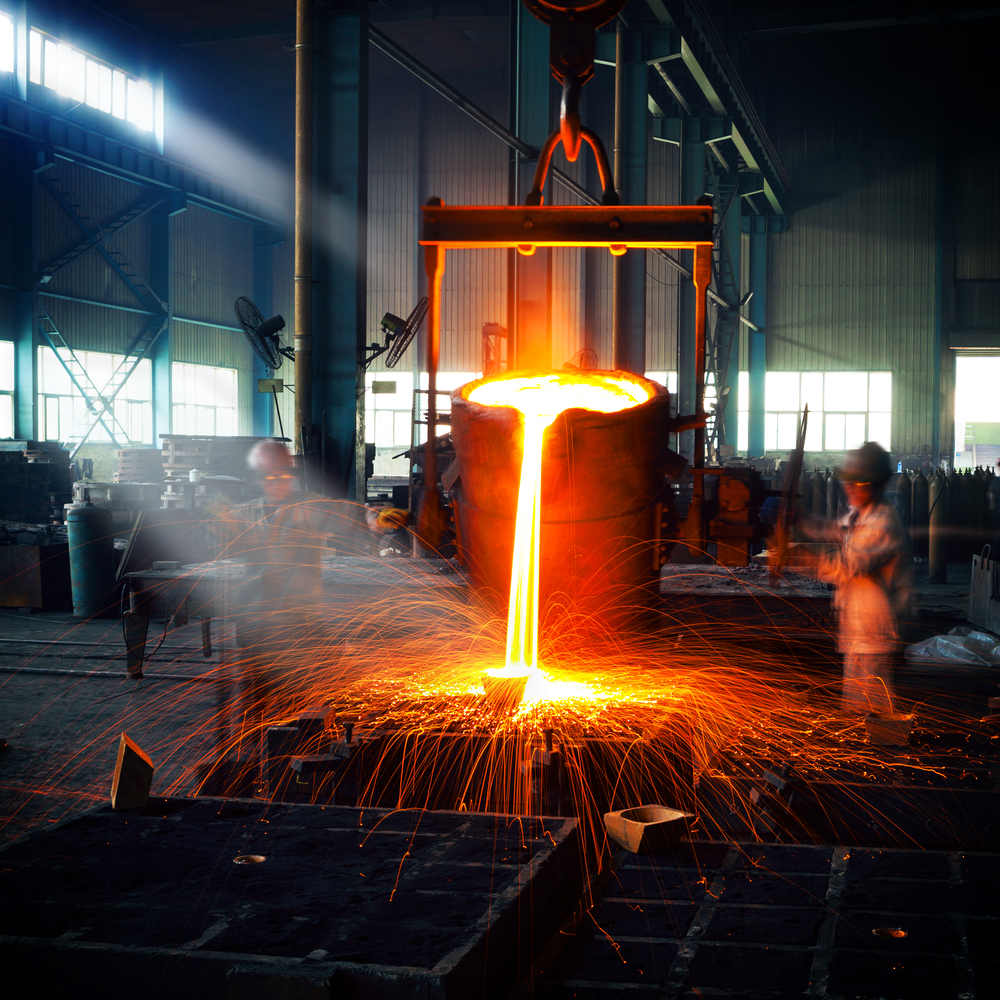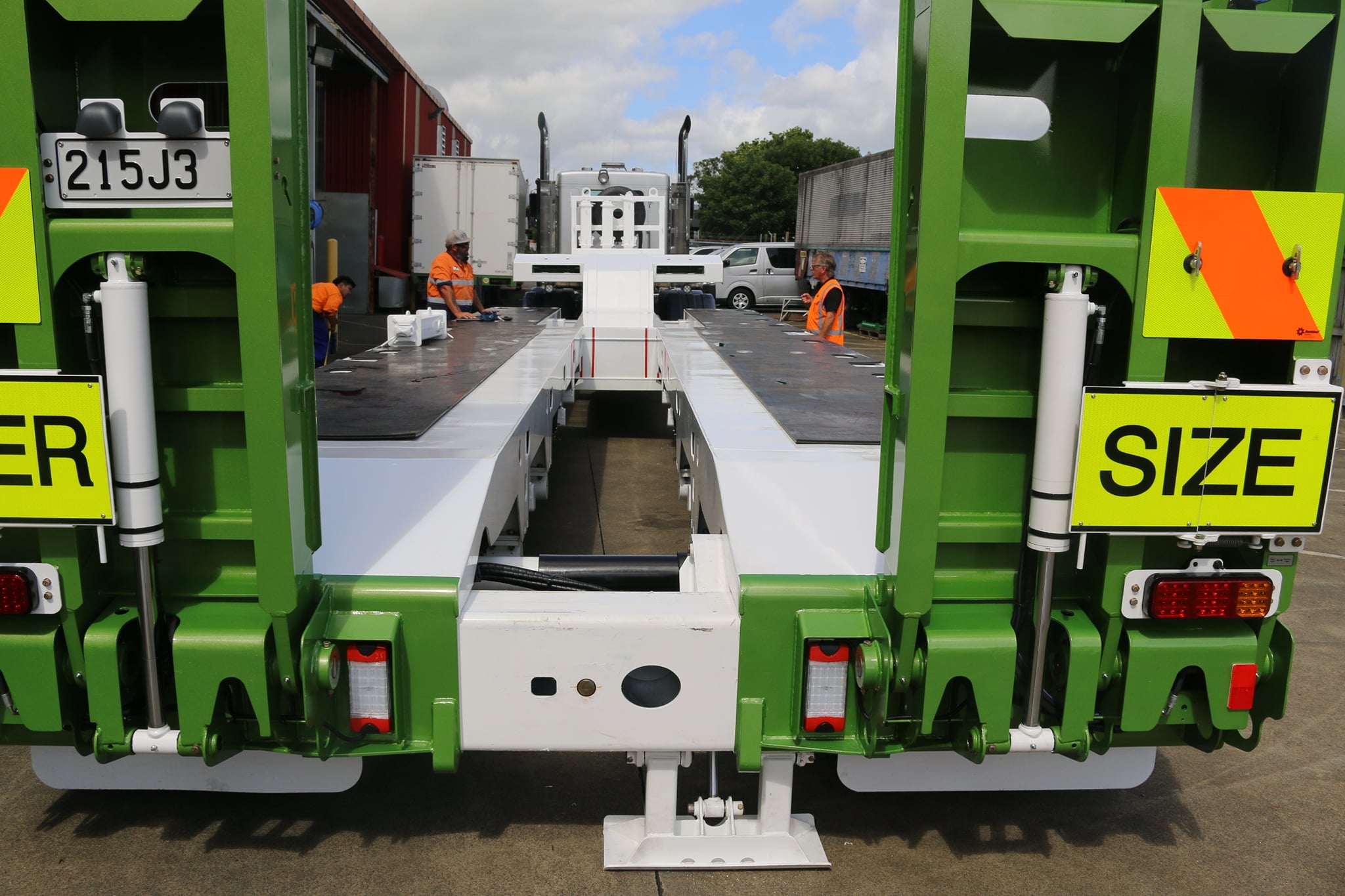
7 Ways To Easily Maintain Your Hydraulic Tipper Trailer
There are many steps owners can take in order to maintain their hydraulic tipper trailer. There are some things you can check frequently by doing a pre-trip walk around and other things need to be checked less often such as monthly or annually.
Check the Hydraulic Fluid
If you find your tipper trailer is having a sluggish response time and is not raising smoothly then you may need to replace your hydraulic fluid. This process may vary between single axel, multi-axel and tandem trailers so check with the manufacturer prior to fluid replacement.
How often you should replace your fluid varies over the environment your trailer is in and how often it is used. A recommendation is replacing fluid after 1000 hours of use but ask your manufacturer what they would recommend.
If your trailer is kept in a damp, dirty or dusty area a full replacement will be needed between 6 months and 1 year however if it is stored in favourable conditions the hydraulic pump can go up to 2 years before needing a fluid replacement.
If you are not using your trailers very often and are left to sit for long periods of time you will need to check your fluid levels prior to use. Hydraulic fluid does degrade over time and can lose its beneficial properties.
There are multiple types of hydraulic fluids on the market so speak to the manufacturer about which they would recommend for your particular trailer.
Check Trailer Brakes
Brakes are a vital feature on any trailer, they not only improve safety but also make towing less stressful therefore it is key that your breaks are functioning properly. Conducting regular inspections of your breaks can also save you time and money when it comes to getting your trailers to warrant of fitness.
The first thing you should do is check all brake components for damage or disrepair. You can either do this yourself or take your trailer to a professional to be looked at.
If you hear or see any signs of grinding between brake components then this is a key indication your brakes need repairing or a foreign body may have gotten lodged in them.
When using trailers to transport heavy loads it can cause uneven brake pad wear if the weight is not evenly distributed. If this is the case then you will need to replace your brake pads and going forward if possible try to have a more even weight distribution across your trailer.
Brake fluid is a key component of all breaks so it is essential that you keep an eye on your trailer brake fluid levels. Brake fluid should be replaced every 2 years for boat trailers and 3 years for utility trailers. Speak to your manufacturer on how to check your brake fluid levels and which brake fluid they recommend.
Check your Tyres and Wheels
Most trailers perish with age more than wear however this of course depends on how often your trailer is being used. Because of this, you should check for cracking and deterioration on your tyre. If the cracks are large enough to expose cords (steel within the tyre) take it to a professional immediately.
Regularly check your tyres to make sure they have the right amount of tread. Without enough tread, you won’t have enough grip and will not be as safe. The legal depth is more than 1.5mm.
As tread is the only part of your trailer that grips to the road it is essential that your tread meets the requirements most tyres have tread depth indicators within the grooves and the width within you should measure. Examples of these indicators can be seen below.
Another thing to check on your tyres is their pressure. A correct tyre pressure ensures balanced brakes, longer tyre life and safety. Your trailer manufacturer will have a recommended pressure that you legally need to meet. It’s good to check your pressure monthly with a tyre pressure gauge. These can be found at most gas stations.
When it comes to checking your wheels you should check for any cracks on the rims and have them repaired if needed. Also regularly check the wheel nuts to ensure they are tight and won’t come loose.
Ensure all Trailer Parts are Lubricated
To ensure your trailer doesn’t seize up and will last you a long time it is important to regularly lubricate any moving parts within your trailer and its hydraulic pump.
Starting with the coupling and hitch ball these need to be able to rotate freely and easily latch onto the towing vehicle. Apply a thin layer of automotive grease to the inside of the coupler and the ball. This should be done monthly or more frequently if you find it is starting to seize.
Every month you should inspect the pivot points within your trailer and hydraulic cylinder ends, upon inspection apply a small amount of lubrication to all areas to ensure proper usage.
The jockey wheel needs to be greased at least 2 times a year. Apply lubrication to the gears and pivot points. It is also good to lubricate moving parts within your trailer after it has been washed as this will help to prevent rust from forming over time.
Your trailer’s axles need to be greased every 12 months unless otherwise specified by your manufacturer.
Check for Cracks or Splits
Depending on how frequently you use your trailer you should check prior to towing whether there are cracks, pits or flats in the coupling, hitch ball, ring and pintle. Repair or replace if necessary.
If your trailer has been used for moving heavy loads you should inspect the wields and fasteners immediately. To prevent severe damage to your trailer you should go over all wields for any cracks at least once a year.
A good indication of cracks on your trailer structure is rust, if there are any signs of rust take a closer look. If you do find a crack do not weld over the top. It needs to be properly fixed to ensure the trailer’s structural integrity.
Check for any cracks or splits in the hydraulic system. Splits are quite common due to the amount of pressure that is placed on the system so to prevent leaks it is good to do a monthly check.
Keep your Trailer Clean
To prevent rust or deterioration on your trailer it is important to keep it clean and store it in a favourable location. A favourable location would be a dry environment that does not have much temperature fluctuation.
It is especially important to clean your trailer if it has been used in or near salt water as this easily causes rust and corrosion.
Have a WOF and Rego
In order to use your trailer on the road, it needs to have current registration and warrant of fitness. If you regularly maintain your trailer it should easily pass the warrant of fitness as assessors shouldn’t find many major faults.
The age of your trailer will determine how often your WOF needs to be renewed you can find any information relating to your trailer warrant of fitness on the NZTA website or at your local garage.
Conclusion
In conclusion, there are many ways to maintain your hydraulic tipper trailer. It is important to keep up with the maintenance schedule in order to keep your trailer working properly. By following these tips, you can ensure that your hydraulic tipper trailer will last for years to come.



